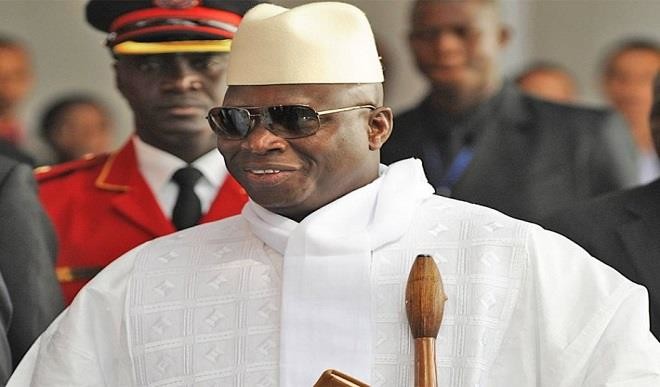Will our Gambian intervention have a palliative?
As things stand now, Nigeria is taking a lead with the resolution of the political impasse generated by the refusal of the Gambian strongman, Yahya Jammeh to respect the result of that country’s presidential election in which he allegedly lost to his opponent, Adama Barrow. On the face of it as the undisputed giant of […]


As things stand now, Nigeria is taking a lead with the resolution of the political impasse generated by the refusal of the Gambian strongman, Yahya Jammeh to respect the result of that country’s presidential election in which he allegedly lost to his opponent, Adama Barrow. On the face of it as the undisputed giant of Africa and leading political and economic power bloc, it will behove on Nigeria to take this lead. Nigeria in 2014 was the largest market in Africa, and fluctuates here and there as the largest exporter of crude oil, a position which earns Nigeria a tidy income.
But there are issues at home here needing Mr. President’s urgent attention. The Nigerian economy is currently experiencing a glut. Oil prices are at an all-time low. Most state governments are unable to pay salaries of workers. There has been a gale of sacks and there is massive hunger in the land, the likes that have not been seen in decades. Boko Haram have ravaged the North East, and monies which were supposed to be used to revamp some parts of that unfortunate region have been allegedly pocketed by officials close to government. I recall that in the prosecution of the case of the missing or mismanaged $2.1billion put aside to fight Boko Haram, the supposed spender in chief took the Federal government to the ECOWAS court and got judgement that the Federal government should release him. But Nigeria refused to obey that judgement, in its wisdom.
So at a time like this, Nigeria would be wise to look in-ward first and put its house in order even as she embarks on this act of chivalrous bravado. In Kaduna recently, what looked like a pogrom took place, and what was the response of our government? Short of being accused of looking the other way, it took our president a long time before he sent what looks like help to Southern Kaduna. If we are unable to take care of events of this scale at home, what gives us the impression that when we get to The Gambia we would be able to bully our way through?
Many people believe that Nigeria has already showed leadership in Africa with its example of accepting defeat after a presidential election. Part of the credit for Ghana following suit by accepting defeat after a presidential election belongs to Nigeria. The incident in The Gambia is an aberrant one. The chap initially accepted defeat but thereafter rescinded unfortunately.
Therefore, what Nigeria should do is this: while pursuing peace and reconciliation in Banjul, we should as well take care of issues at home. Nigeria can expend equivalent energy it has invested with resolving the Gambian imbroglio with revamping the North East, build alternative energy sources, build capacity and create employment. If we can create employment for our people, and rebuild our economy, stop mismanagement, that will be clear signal that Nigeria means what she says and says what she means when an issue like The Gambia imbroglio may occur anywhere on the continent.
Bob MajiriOghene Etemiku, Benin City, Edo State
